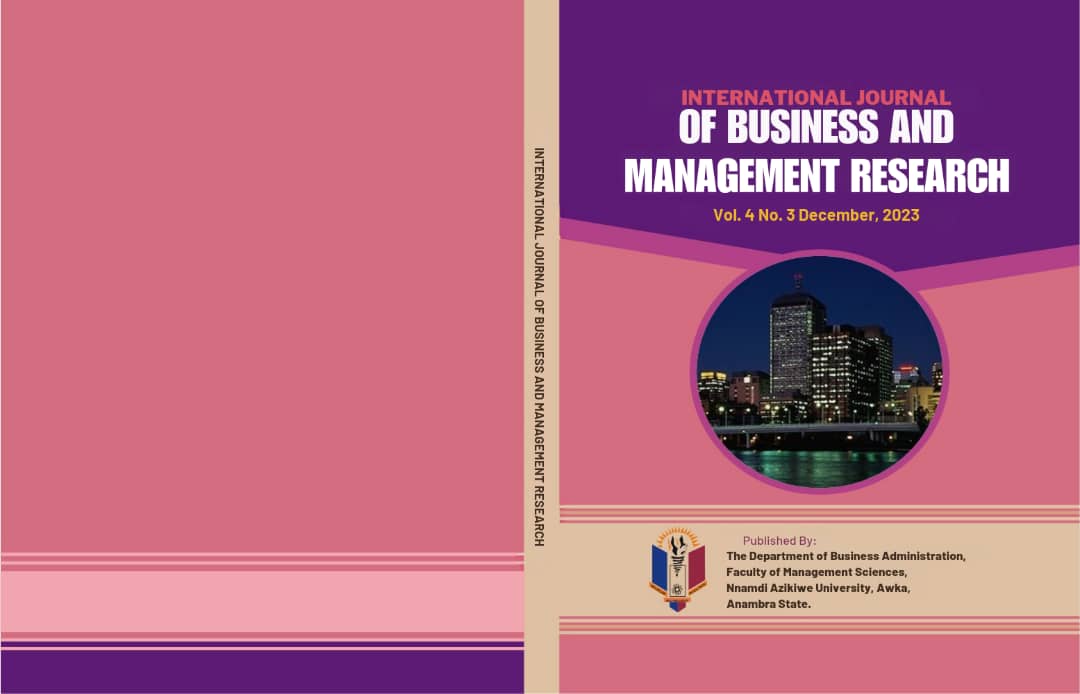E-GOVERNANCE AND PERFORMANCE OF PUBLIC SECTOR MANAGEMENT IN NIGERIA
Keywords:
Technology Infrastructure, Digital service, Administrative Efficiency, Policy Implementation, Public Sector Management, TransparencyAbstract
The seeming absence of contemporary technology in many public sector organisations has affected administrative processes, increased bureaucratic inefficiencies, and reduced the accessibility and quality of public services. This study ascertained the relationship that exist between E-governance and the performance of public sector management in Nigeria. The specific objectives focused on ascertaining the degree to which technology infrastructure relates to policy implementation in the public sector management, determining the extent to which digital service availability correlates with the level of service delivery in public sector management and examining the level to which administrative efficiency relates to transparency and accountability in the public sector
management. The study was anchored on change management theory that originated from the work of Kurt Lewin in the 1940s. The sample size was 20 (2 management staff from 10 public organisations in Anambra State, Nigeria) purposively obtained from the infinite population. Pearson`s Products Moment Correlation was used to test the formulated hypotheses. Findings revealed that technology infrastructure significantly relates to policy implementation in public sector management. Again, digital service availability
significantly correlates with the level of service delivery in public sector management, while administrative efficiency significantly relates to transparency and accountability in public sector management at a 5% significance level. The study concluded that by investing in technology infrastructure, expanding digital service availability, and enhancing administrative efficiency, the government can leverage digital innovations to deliver better services, enhance governance outcomes, and promote inclusive and sustainable
development. The study, therefore, recommended among others that the Nigerian government need to prioritise investments in upgrading and modernising digital infrastructure, including internet connectivity, hardware, and software systems, and support more efficient policy implementation for quality public services.




